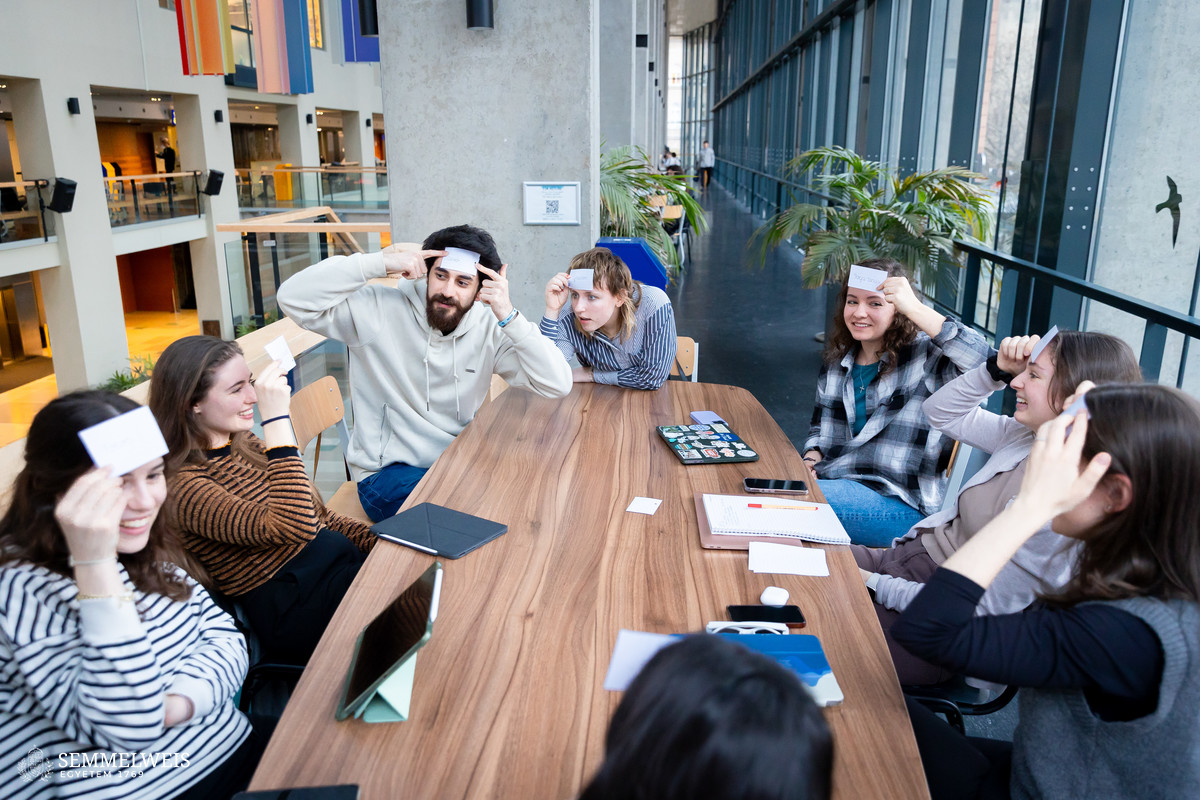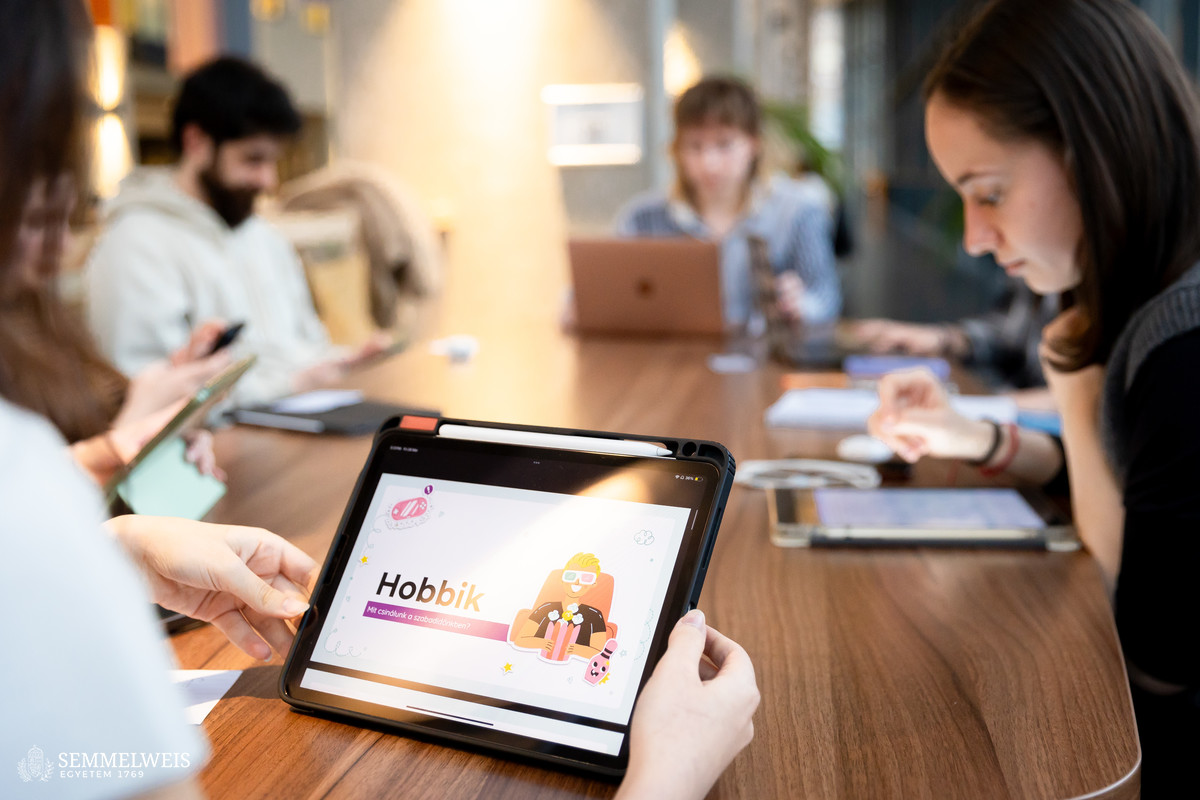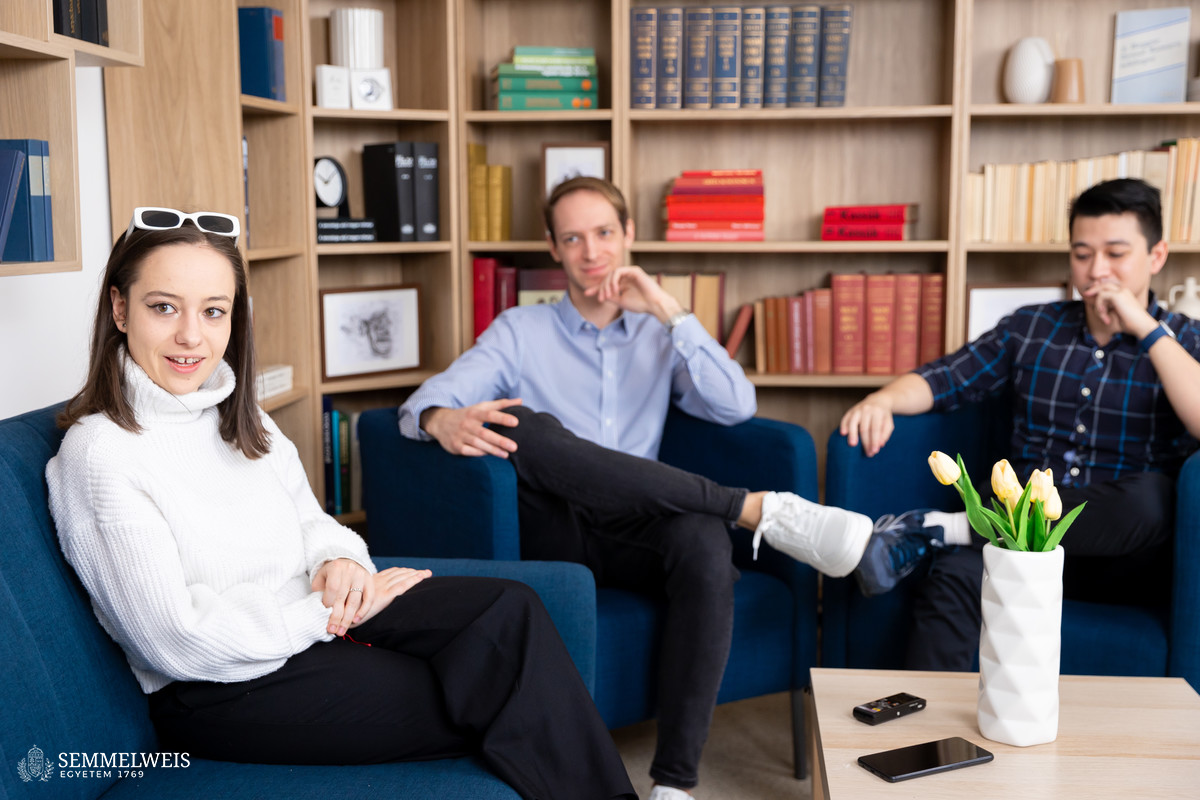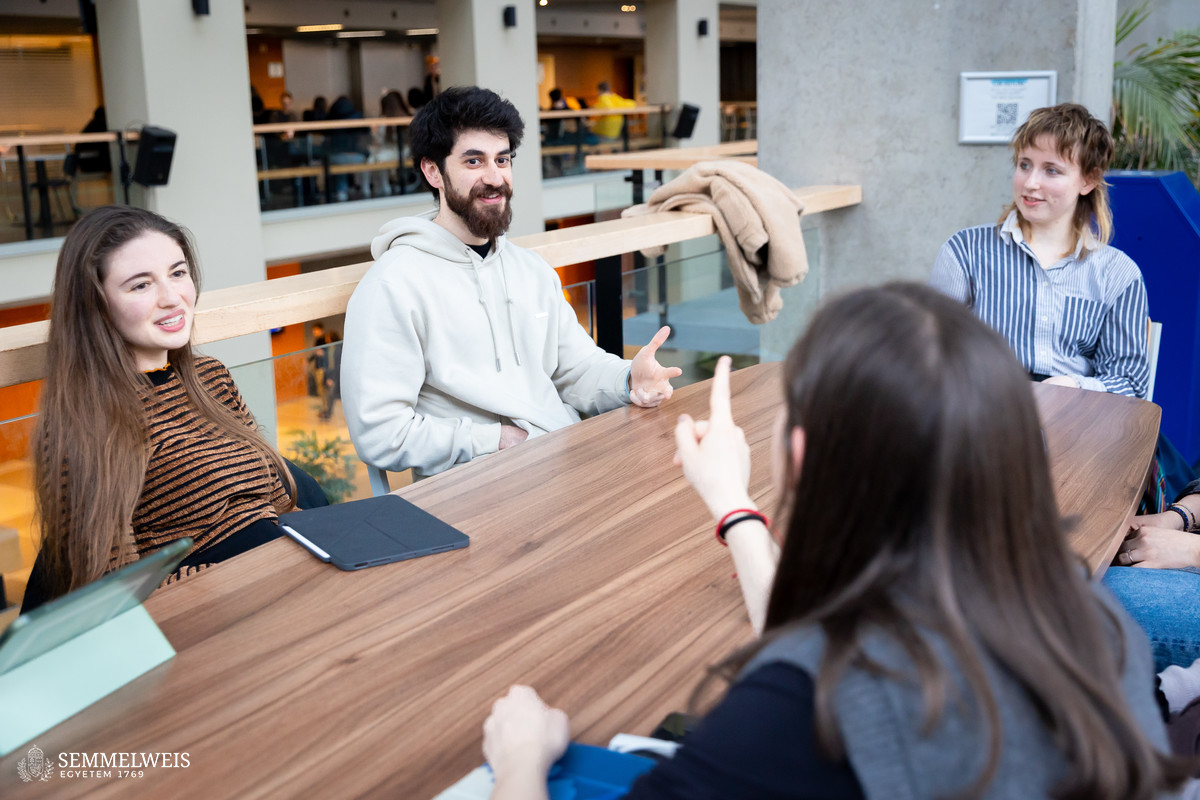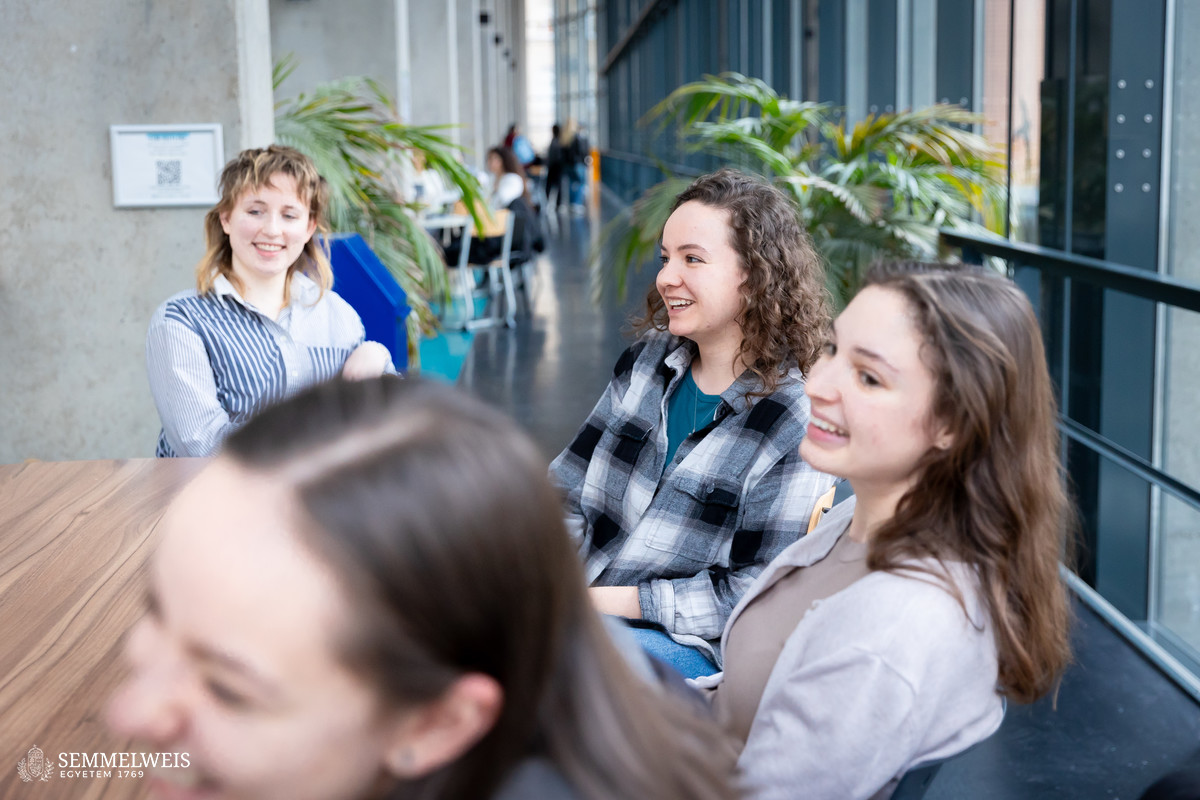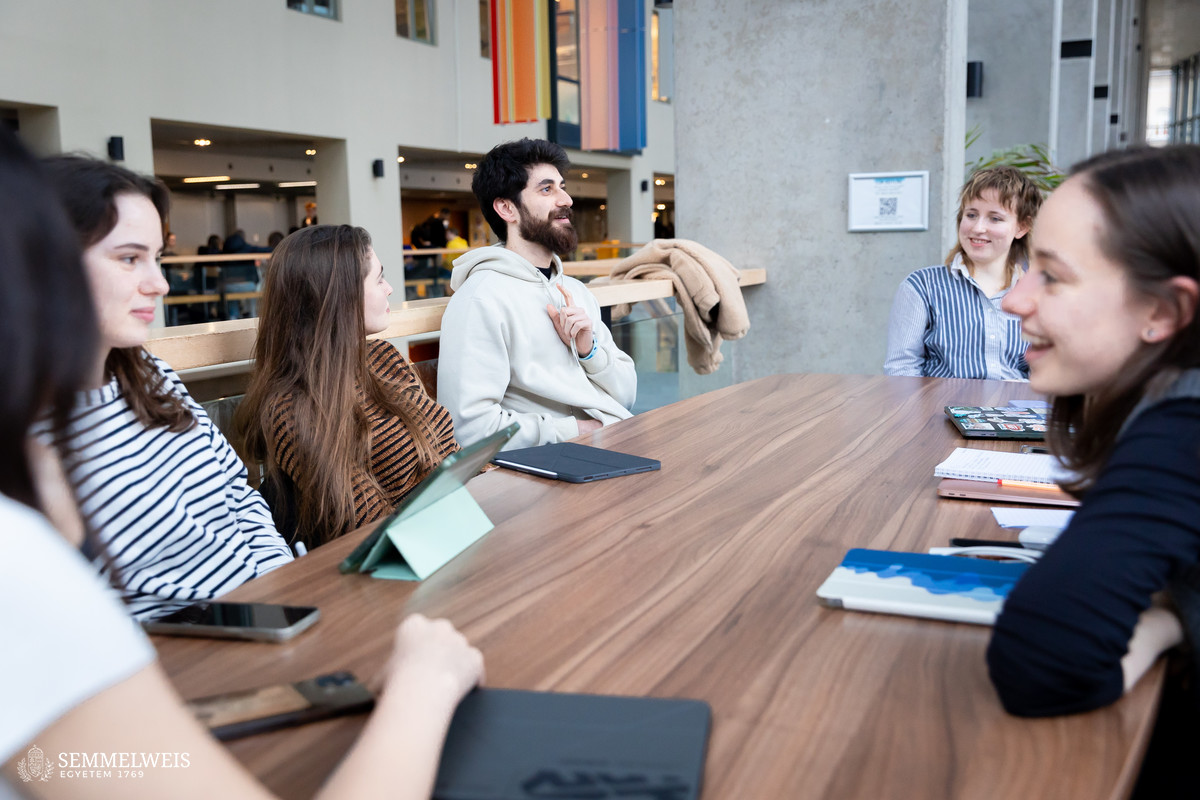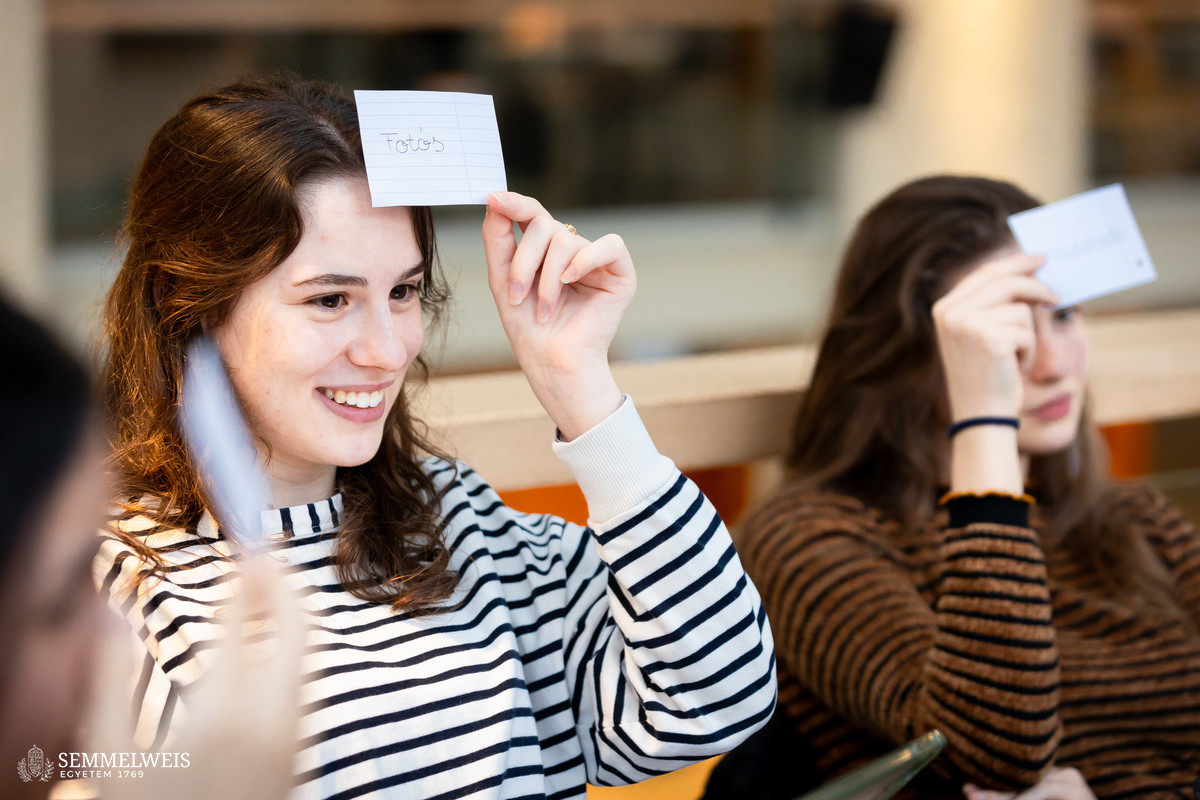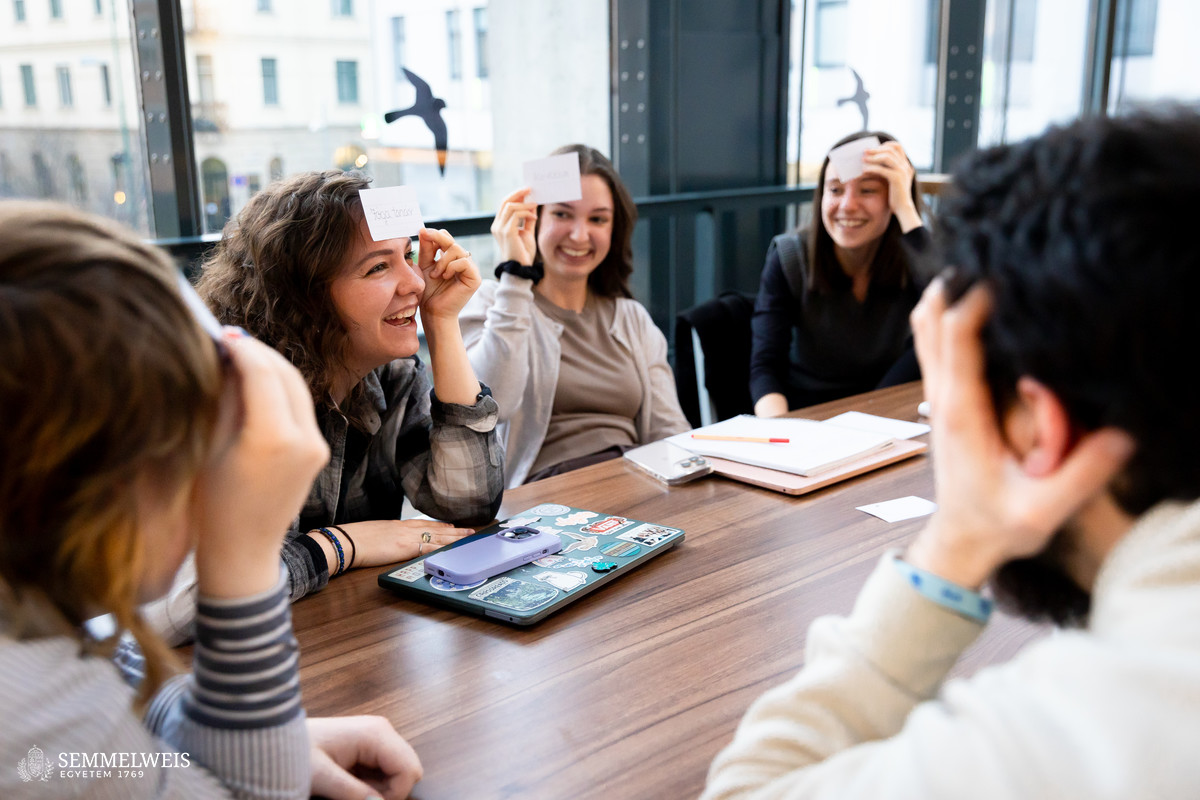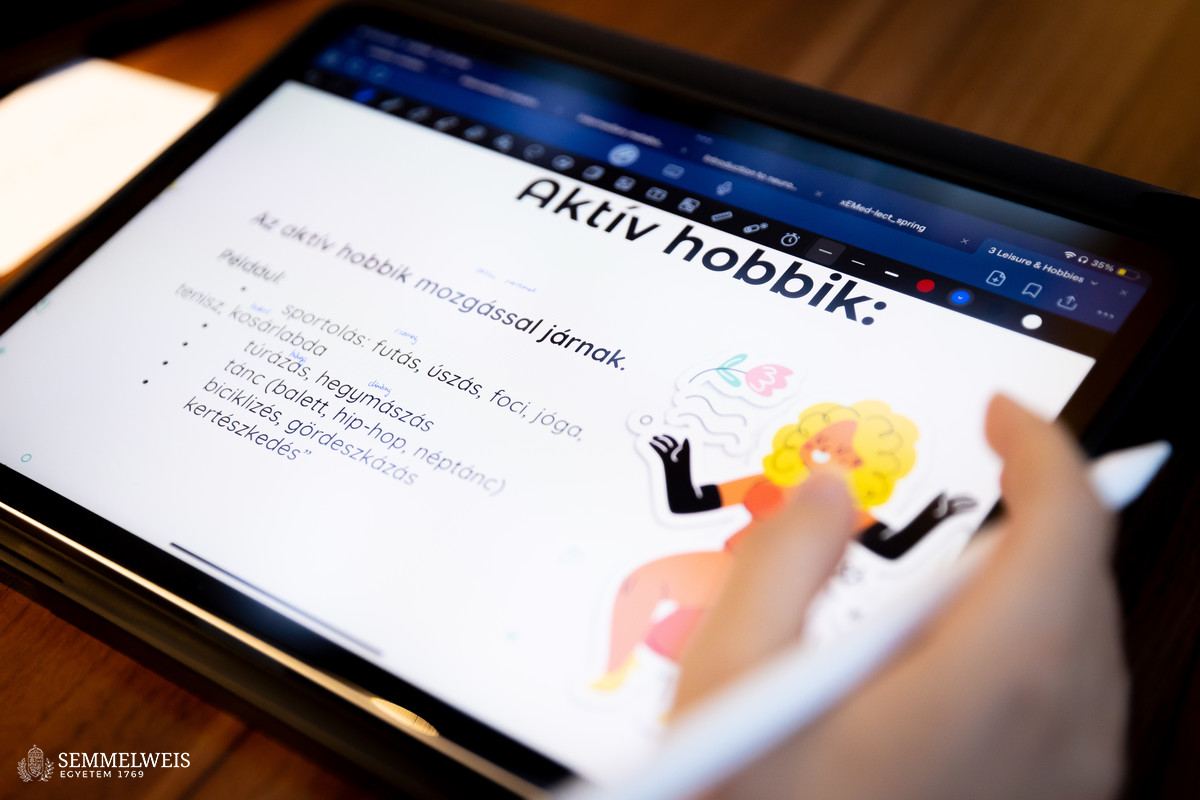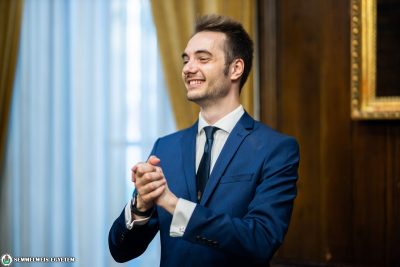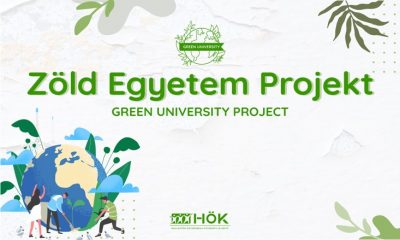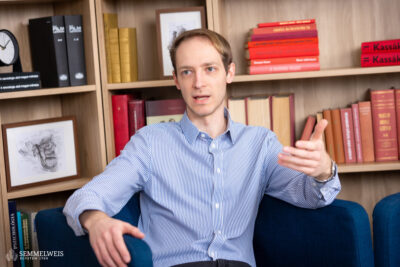 The Language Club course was launched on the initiative of the Students’ Union of Semmelweis University with the aim of filling a gap. While the courses of the Institute of Languages for Specific Purposes focus primarily on teaching various specialist languages, the Language Club, which has been operating in its current form for almost five years, aims to develop general, practical communication skills and intercultural competences. The courses are coordinated by the International Students’ Committee of HÖK, whose Head, Márk Havasi, stressed that the committee’s main task was to support international students and to foster relations between them and Hungarian students. To this end, the committee organize various events, but the Language Club is also part of this concept; to be able to operate it, they rely on students whose first language is Hungarian, English, or German. This is because the tutors running the sessions are students who are typically native speakers of the relevant language; however, the minimum requirement for them is to be at C1 level.
The Language Club course was launched on the initiative of the Students’ Union of Semmelweis University with the aim of filling a gap. While the courses of the Institute of Languages for Specific Purposes focus primarily on teaching various specialist languages, the Language Club, which has been operating in its current form for almost five years, aims to develop general, practical communication skills and intercultural competences. The courses are coordinated by the International Students’ Committee of HÖK, whose Head, Márk Havasi, stressed that the committee’s main task was to support international students and to foster relations between them and Hungarian students. To this end, the committee organize various events, but the Language Club is also part of this concept; to be able to operate it, they rely on students whose first language is Hungarian, English, or German. This is because the tutors running the sessions are students who are typically native speakers of the relevant language; however, the minimum requirement for them is to be at C1 level.
Bori Pajor, Language Club Manager at the International Students’ Committee of HÖK and coordinator of the Hungarian-language sessions, is a tutor herself. As she pointed out, there are currently two groups in each of the three language sections, making a total of six groups, and each ideally has room for four to five people, so there are about 30 students participating in the program. The fact that the sessions, which are 90 minutes long and take place once a week, are held in small groups greatly facilitates effective language practice. The course is open to all students at the university free of charge, but Bori Pajor says it is worth integrating them into the program early so that they can participate for as many years as possible. However, it is important to keep in mind that the tutors do not have a teaching qualification, so we cannot work with complete beginners, she added. International students are required to participate in the specialist Hungarian-language training provided by the Institute of Languages for Specific Purposes in the first two years of study, so it is best for them to apply for Language Club sessions in the second year, when they have already had some exposure to the Hungarian language, explained Márk Havasi.
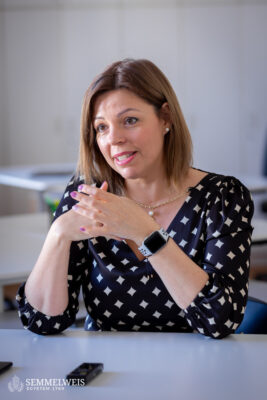 Viktória Sirokmány, English for specific purposes (ESP) teacher at the Institute of Languages for Specific Purposes as well as Language Club coordinator, spoke about the fact that the students participating in the program are at different language levels. She noted that although originally anyone from A1 to C1 level could take part in the sessions, now the threshold is rather B1, as this is necessary for real communication to take place and for participants to be able to use the language in playful, practical situations. In order to ensure effective language practice, tutors try to organize the groups so that there are no large differences between the students in terms of their language skills. On the subject of teaching materials, she added that although they recommended textbooks to the tutors, these were meant to be no more than a form of support; the Language Club had not become textbook-based, nor was that the aim. The assessment of students also takes place in an informal way, based on end-of-semester reports written by the tutors, from which Bori Pajor, as Language Club Manager, sends a summary to the Institute of Languages for Specific Purposes. At the same time, in the interests of continuous improvement, students are also asked to evaluate their sessions at the end of the semester using online forms, but tutors may ask for more frequent feedback.
Viktória Sirokmány, English for specific purposes (ESP) teacher at the Institute of Languages for Specific Purposes as well as Language Club coordinator, spoke about the fact that the students participating in the program are at different language levels. She noted that although originally anyone from A1 to C1 level could take part in the sessions, now the threshold is rather B1, as this is necessary for real communication to take place and for participants to be able to use the language in playful, practical situations. In order to ensure effective language practice, tutors try to organize the groups so that there are no large differences between the students in terms of their language skills. On the subject of teaching materials, she added that although they recommended textbooks to the tutors, these were meant to be no more than a form of support; the Language Club had not become textbook-based, nor was that the aim. The assessment of students also takes place in an informal way, based on end-of-semester reports written by the tutors, from which Bori Pajor, as Language Club Manager, sends a summary to the Institute of Languages for Specific Purposes. At the same time, in the interests of continuous improvement, students are also asked to evaluate their sessions at the end of the semester using online forms, but tutors may ask for more frequent feedback.
As Viktória Sirokmány pointed out, the tasks of the Institute of Languages for Specific Purposes include the selection of tutors with the help of the relevant specialist language coordinators, in cooperation with HÖK; occasional visits to the sessions; and liaising with the Language Club coordinators and manager. The institute was also responsible for developing the interactive, experiential teaching methodology behind the program.
When I took over the coordination of the Language Club, this kind of interactive and experiential approach came into sharper focus. What I can see now is that there is a very enthusiastic, positive leadership in HÖK. They really like to do this, and Bori Pajor and I can work very well together; we both want to focus more and more on student-centered, practical language use. – Viktória Sirokmány
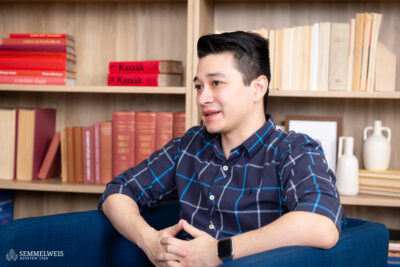 Simon Péter Pásztor, Deputy Head of the International Students’ Committee of HÖK, stressed that besides language learning, an important aspect of the Language Club was to create a community experience, thus promoting the integration of international students; it also happened that friendships were formed while practicing together for a long time. The tutors also play an important role in helping the groups to become communities, and they sometimes organize other activities in addition to the usual sessions: As part of the practice, for example, members of a Hungarian-language group went to Heroes’ Square in Budapest to talk about what they could see there, but this semester all language sections are organizing free-time activities outside the classroom (e.g. going to a traditional dance hall or an escape room).
Simon Péter Pásztor, Deputy Head of the International Students’ Committee of HÖK, stressed that besides language learning, an important aspect of the Language Club was to create a community experience, thus promoting the integration of international students; it also happened that friendships were formed while practicing together for a long time. The tutors also play an important role in helping the groups to become communities, and they sometimes organize other activities in addition to the usual sessions: As part of the practice, for example, members of a Hungarian-language group went to Heroes’ Square in Budapest to talk about what they could see there, but this semester all language sections are organizing free-time activities outside the classroom (e.g. going to a traditional dance hall or an escape room).
 Regarding tutoring, Bori Pajor explained that it was currently worth one credit per semester, and to earn the credit tutors had to hold ten sessions, but that included the activities outside the classroom mentioned before. For the future, the aim is to give tutors the status of teaching assistant, which would be a great motivation for them and certainly encourage more people to take on this important task. Speaking of the challenges of tutoring, she mentioned that it was not easy to find a time that suited everyone because of the students’ busy schedules, but that at the moment, the sessions were always in the afternoon. Another difficulty is that it is a lot of work to prepare for the sessions and motivate students regularly at a university where studying hard is essential, and therefore the number of students in the Language Club fluctuates. On the positive side, however, the sessions have recently been given a permanent venue at the Basic Medical Science Center (EOK). The biggest advantage of tutoring, according to Bori Pajor, is that you can meet a lot of people; for her, the Language Club was the first place where she was able to build closer relationships with international students.
Regarding tutoring, Bori Pajor explained that it was currently worth one credit per semester, and to earn the credit tutors had to hold ten sessions, but that included the activities outside the classroom mentioned before. For the future, the aim is to give tutors the status of teaching assistant, which would be a great motivation for them and certainly encourage more people to take on this important task. Speaking of the challenges of tutoring, she mentioned that it was not easy to find a time that suited everyone because of the students’ busy schedules, but that at the moment, the sessions were always in the afternoon. Another difficulty is that it is a lot of work to prepare for the sessions and motivate students regularly at a university where studying hard is essential, and therefore the number of students in the Language Club fluctuates. On the positive side, however, the sessions have recently been given a permanent venue at the Basic Medical Science Center (EOK). The biggest advantage of tutoring, according to Bori Pajor, is that you can meet a lot of people; for her, the Language Club was the first place where she was able to build closer relationships with international students.
The English, German, and Hungarian-language clubs are each open to all students, yet there are some differences between them. Attendance at Hungarian-language sessions is generally more stable, as international students have a strong motivation to learn how to cope with everyday life in Hungary, even if it is just to tell the hairdresser what hairstyle they would like to have. The English and German-language clubs are visited mainly by Hungarians, but there are also international students participating, Bori Pajor said. In the spirit of cultural and linguistic integration, a big get-together is also being planned for all Language Club students and tutors.
Students can register for Language Club sessions via a message sent to them in the Neptun system. Due to the current limited number of tutors, only those who participated in the program in the previous semester were able to register for the 2024/25 spring semester, but it is expected that in the future, registration will again be open to all students.
Dr. Balázs Csizmadia
Photos by Boglárka Zellei – Semmelweis University
